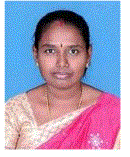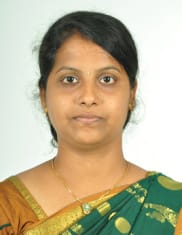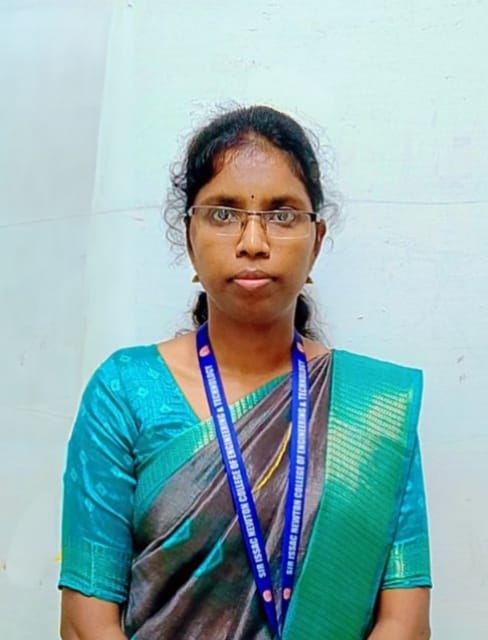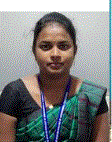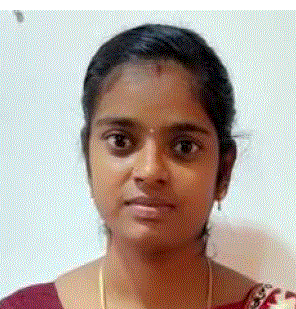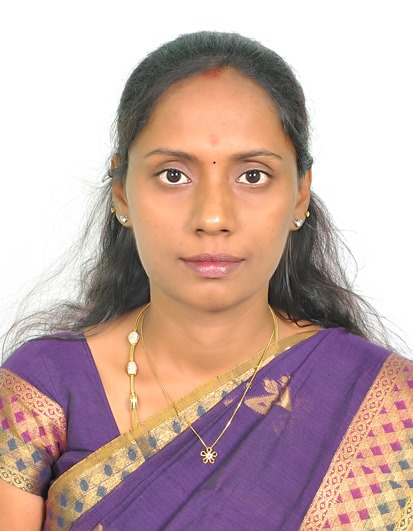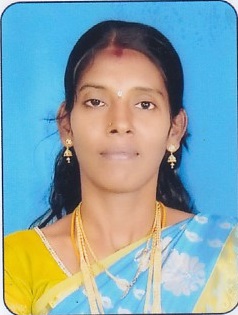Artifical Intelligence And Data Science
Course Description
Department of Artificial Intelligence and Data Science was established in the academic year 2020-2021 with the intake of 60 seats. This Programme B.Tech(Artificial Intelligence and Data Science) is offered as a four years Full time Under Graduate (UG) Programme for the students. B.Tech (AI and DS) is recognized as the worldwide emerging area of today’s Engineering and Technology world and was listed in the AICTE (All India Council for Technical Education): "Model Curriculum of Courses at UG Level in Emerging and Thrust Areas". The strength of the department is largely contributed by a team of dedicated, qualified and experienced faculty members who are specialised in various fields. The research activities of the department are promoted by the well qualified faculty members. The research promotion of the department is evidenced by number of research papers published in refereed Journals. Besides the regular classroom lectures the students are given laboratory exercise to acquire practical skill and computing capability. For this the department has 2 well equipped laboratories. Artificial intelligence is being increasingly used in numerous fields like medical diagnosis, robots, stock trading, scientific discovery and the automobile industry. Artificial intelligence is the simulation of human intelligence processes includes learning, which is the acquisition of information and rules for using information, reasoning which is using rules to reach predictable or definite conclusions and self-correction. Economic value is expected to be created from new goods, services, and innovations produced by AI.
Beyond the economic impact, Artificial Intelligence will also have a transformative impact on larger items of Indian society. The Curriculum and Syllabus is designed to match the recent industry expectations with high focus on Artificial Intelligence, Machine learning, big data Analytics, Data Science, Data mining and Data modelling. This Programme involves the students to get professional skills on AI&DS by proposing and learning more mathematical modelling. By the successful completion of the degree, the students will gain cross-disciplinary professional skills across various fields of Logical Computer Science, Data Scientists and will have excellent career opportunities in Healthcare, Business, e-Commerce, Social networking Companies, Climatology, Biotechnology, Genetics, and other important areas. This Programme is offered with a motto of preparing the student as an intelligent data analyst which is the key component in numerous real-world applications. Focus on Experiential and Project Based Learning, Students centered Teaching Learning Process, In-house and Industry Internship opportunities, Excellent faculty student ratio, Online learning through NPTEL, Spoken Tutorial, etc.
Vision:
1. To produce globally competent engineering professionals with a focus on intellectual learning of artificial intelligence and data science tools with utmost professionalism.
2. To enhance the problem solving skills of students with a focus to prepare them for industry expectation, support them in research areas with value based education to serve the greater cause of the society ethically.
Mission:
1. To improve the interdisciplinary skill set of students by cognitive learning environment with industrial collaboration in the field of Artificial Intelligence and Data Science.
2. Provide the students with leadership qualities, ethical and human values to serve the nation and focus on students’ overall development
3. To guide the students to do research in the area of artificial intelligence and data science with an aim of having impact on society by tackling societal challenges.
PEO (PROGRAM EDUCATIONAL OBJECTIVE)
Graduates can
1. Utilize their proficiencies in the fundamental knowledge of basic sciences, mathematics, Artificial Intelligence, data science and statistics to build systems that require management and analysis of large volumes of data.
2. Advance their technical skills to pursue lifelong learning and pioneering research in the field of AI and Data Science and create sustainable solutions for the welfare of ecosystems with a multi-disciplinary team.
3. Design and model AI based solutions to critical problem in the real world and to exhibit innovative thoughts and creative ideas for effective contribution towards economy building.
PSO (PROGRAM SPECIFIC OUTCOME)
Graduates should be able to
1. Evolve AI based efficient domain specific processes for effective decision making in several domains such as business and governance domains and to solve business and engineering problems
2. Create, select and apply the theoretical knowledge of AI and Data Analytics along with practical industrial tools and techniques to manage and solve wicked societal problems and capable of coordinating complex projects.
3. Able to carry out fundamental research to cater the critical needs of the society through cutting edge technologies of AI.
Course Outcomes
| Regulation-2021-UG | |||
|---|---|---|---|
| YEAR /SEMESTER:II/III | |||
| C301 - MA3354 – DISCRETE MATHEMATICS | |||
| C301.1 | Have knowledge of the concepts needed to test the logic of a program. | ||
| C301.2 | Have an understanding in identifying structures on many levels. | ||
| C301.3 | Be aware of a class of functions which transform a finite set into another finite set which relates to input and output functions in computer science. | ||
| C301.4 | Be aware of the counting principles. | ||
| C301.5 | Be exposed to concepts and properties of algebraic structures such as groups, rings and fields. | ||
| C302 – CS3351 – DIGITAL PRINCIPLES AND COMPUTER ORGANIZATION | |||
| C302.1 | Design various combinational digital circuits using logic gates | ||
| C302.2 | Design sequential circuits and analyze the design procedures | ||
| C302.3 | State the fundamentals of computer systems and analyze the execution of an instruction | ||
| C302.4 | Analyze different types of control design and identify hazards | ||
| C302.5 | Identify the characteristics of various memory systems and I/O communication. | ||
| C303 – AD3391 - DATABASE DESIGN AND MANAGEMENT | |||
| C303.1 | Understand the database development life cycle and apply conceptual modeling | ||
| C303.2 | Apply SQL and programming in SQL to create, manipulate and query the database | ||
| C303.3 | Apply the conceptual-to-relational mapping and normalization to design relational database | ||
| C303.4 | Determine the serializability of any non-serial schedule using concurrency techniques | ||
| C303.5 | Apply the data model and querying in Object-relational and No-SQL databases. | ||
| C304 – AD3351 DESIGN AND ANALYSIS OF ALGORITHMS | |||
| C304.1 | Analyze the efficiency of recursive and non-recursive algorithms mathematically | ||
| C304.2 | Analyze the efficiency of brute force, divide and conquer, decrease and conquer, Transform and conquer algorithmic techniques | ||
| C304.3 | Implement and analyze the problems using dynamic programming and greedy algorithmic techniques. | ||
| C304.4 | Solve the problems using iterative improvement techniques for optimization. | ||
| C304.5 | Compute the limitations of algorithmic power and solve the problems using backtracking and branch and bound techniques | ||
| C305 - AD3301 - DATA EXPLORATION AND VISUALIZATION | |||
| C305.1 | Understand the fundamentals of exploratory data analysis. | ||
| C305.2 | Implement the data visualization using Matplotlib. | ||
| C305.3 | Perform univariate data exploration and analysis. | ||
| C305.4 | Apply bivariate data exploration and analysis. | ||
| C305.5 | Use Data exploration and visualization techniques for multivariate and time series data. | ||
| C306 – AL3391 - ARTIFICIAL INTELLIGENCE | |||
| C306.1 | Explain intelligent agent frameworks | ||
| C306.2 | Apply problem solving techniques | ||
| C306.3 | Apply game playing and CSP techniques | ||
| C306.4 | Perform logical reasoning | ||
| C306.5 | Perform probabilistic reasoning under uncertainty | ||
| C307 - AD3381 - DATABASE DESIGN AND MANAGEMENT LABORATORY | |||
| C307.1 | Understand the database development life cycle | ||
| C307.2 | Design relational database using conceptual-to-relational mapping, Normalization | ||
| C307.3 | Apply SQL for creation, manipulation and retrieval of data | ||
| C307.4 | Develop a database applications for real-time problems | ||
| C307.5 | Design and query object-relational databases series data. | ||
| C308 - AD3311 - ARTIFICIAL INTELLIGENCE LABORATORY | |||
| C308.1 | Design and implement search strategies | ||
| C308.2 | Implement game playing and CSP techniques | ||
| C308.3 | Develop logical reasoning systems | ||
| C308.4 | Develop probabilistic reasoning systems | ||
| C307 - AD3381 - DATABASE DESIGN AND MANAGEMENT LABORATORY | |||
| C307.1 | Understand the database development life cycle | ||
| C307.2 | Design relational database using conceptual-to-relational mapping, Normalization | ||
| C307.3 | Apply SQL for creation, manipulation and retrieval of data | ||
| C307.4 | Develop a database applications for real-time problems | ||
| C307.5 | Design and query object-relational databases series data. | ||
| C308 - GE3361 - PROFESSIONAL DEVELOPMENT | |||
| C308.1 | Use MS Word to create quality documents, by structuring and organizing content for their day to day technical and academic requirements | ||
| C308.2 | Use MS EXCEL to perform data operations and analytics, record, retrieve data as per requirements and visualize data for ease of understanding | ||
| C308.3 | Use MS PowerPoint to create high quality academic presentations by including common tables, charts, graphs, interlinking other elements, and using media objects. | ||
| YEAR / SEMESTER : II / IV | |||
| C401 - MA3391 - PROBABILITY AND STATISTICS | |||
| C401.1 | Understand the fundamental knowledge of the concepts of probability and have knowledge of standard distributions which can describe real life phenomenon | ||
| C401.2 | Understand the basic concepts of one and two dimensional random variables and apply in engineering applications. | ||
| C401.3 | Apply the concept of testing of hypothesis for small and large samples in real life problems. | ||
| C401.4 | Apply the basic concepts of classifications of design of experiments in the field of agriculture and statistical quality control. | ||
| C401.5 | Have the notion of sampling distributions and statistical techniques used in engineering and management problems. | ||
| C402 - AL3452 - OPERATING SYSTEMS | |||
| C402.1 | Analyze various scheduling algorithms and process synchronization. | ||
| C402.2 | Explain deadlock, prevention and avoidance algorithms. | ||
| C402.3 | Compare and contrast various memory management schemes. | ||
| C402.4 | Explain the functionality of file systems I/O systems, and Virtualization | ||
| C402.5 | Compare iOS and Android Operating Systems. | ||
| C403 – AL3451 - MACHINE LEARNING | |||
| C403.1 | Explain the basic concepts of machine learning. | ||
| C403.2 | Construct supervised learning models. | ||
| C403.3 | Construct unsupervised learning algorithms. | ||
| C403.4 | Evaluate and compare different models | ||
| C404 - AD3491 - FUNDAMENTALS OF DATA SCIENCE AND ANALYTICS | |||
| C404.1 | Explain intelligent agent frameworks | ||
| C404.2 | Apply problem solving techniques | ||
| C404.3 | Apply game playing and CSP techniques | ||
| C404.4 | Perform logical reasoning | ||
| C404.5 | Perform probabilistic reasoning under uncertainty | ||
| C405 – CS3591 - COMPUTER NETWORKS | |||
| C405.1 | Explain the basic layers and its functions in computer networks. | ||
| C405.2 | Understand the basics of how data flows from one node to another. | ||
| C405.3 | Analyze routing algorithms. | ||
| C405.4 | Describe protocols for various functions in the network. | ||
| C405.5 | Analyze the working of various application layer protocols Explain intelligent agent frameworks | ||
| C406 – GE3451 - ENVIRONMENTAL SCIENCES AND SUSTAINABILITY | |||
| C406.1 | To recognize and understand the functions of environment, ecosystems and biodiversity and their conservation. | ||
| C406.2 | To identify the causes, effects of environmental pollution and natural disasters and contribute to the preventive measures in the society. | ||
| C406.3 | To identify and apply the understanding of renewable and non-renewable resources and contribute to the sustainable measures to preserve them for future generations. | ||
| C406.4 | To recognize the different goals of sustainable development and apply them for suitable technological advancement and societal development. | ||
| C406.5 | To demonstrate the knowledge of sustainability practices and identify green materials, energy cycles and the role of sustainable urbanization. | ||
| C407 – AD3411 - DATA SCIENCE AND ANALYTICS LABORATORY | |||
| C407.1 | Write python programs to handle data using Numpy and Pandas | ||
| C407.2 | Perform descriptive analytics | ||
| C407.3 | Perform data exploration using Matplotlib | ||
| C407.4 | Perform inferential data analytics | ||
| C407.5 | Build models of predictive analytics | ||
| C408 – AD3461 - MACHINE LEARNING LABORATORY | |||
| C408.1 | Apply suitable algorithms for selecting the appropriate features for analysis. | ||
| C408.2 | Implement supervised machine learning algorithms on standard datasets and evaluate the performance. | ||
| C408.3 | Apply unsupervised machine learning algorithms on standard datasets and evaluate the performance | ||
| C408.4 | Build the graph based learning models for standard data sets. | ||
| C408.5 | Assess and compare the performance of different ML algorithms and select the suitable one based on the application | ||
| YEAR / SEMESTER : III / V | |||
| C501 – AD3501 - DEEP LEARNING | |||
| C501.1 | Explain the basics in deep neural networks | ||
| C501.2 | Apply Convolution Neural Network for image processing | ||
| C501.3 | Apply Recurrent Neural Network and its variants for text analysis | ||
| C501.4 | Apply model evaluation for various applications | ||
| C501.5 | Apply auto encoders and generative models for suitable applications | ||
| C502- CW3551 - DATA AND INFORMATION SECURITY | |||
| C502.1 | Explain intelligent agent frameworks | ||
| C502.2 | Apply problem solving techniques | ||
| C502.3 | Apply game playing and CSP techniques | ||
| C502.4 | Perform logical reasoning | ||
| C502.5 | Perform probabilistic reasoning under uncertainty | ||
| C503 - CS3551 - DISTRIBUTED COMPUTING | |||
| C503.1 | Explain the foundations of distributed systems (K2) | ||
| C503.2 | Solve synchronization and state consistency problems (K3) | ||
| C503.3 | Use resource sharing techniques in distributed systems (K3) | ||
| C503.4 | Apply working model of consensus and reliability of distributed systems (K3) | ||
| C503.5 | Explain the fundamentals of cloud computing (K2) Explain intelligent agent frameworks | ||
| C504 - CCS334 - BIG DATA ANALYTICS | |||
| C504.1 | Describe big data and use cases from selected business domains. | ||
| C504.2 | Explain NoSQL big data management. | ||
| C504.3 | Install, configure, and run Hadoop and HDFS. | ||
| C504.4 | Perform map-reduce analytics using Hadoop. | ||
| C504.5 | Use Hadoop-related tools such as HBase, Cassandra, Pig, and Hive for big data analytics. | ||
| C505 - CCS338 – COMPUTER VISION | |||
| C505.1 | To understand basic knowledge, theories and methods in image processing and computer vision. | ||
| C505.2 | To implement basic and some advanced image processing techniques in OpenCV | ||
| C505.3 | To apply 2D a feature-based based image alignment, segmentation and motion estimations. | ||
| C505.4 | To apply 3D image reconstruction techniques. | C505.5 | To apply 3D image reconstruction techniques. To design and develop innovative image processing and computer vision applications. |
| C507 – AD3511 - DEEP LEARNING LABORATORY | |||
| C507.1 | Apply deep neural network for simple problems (K3) | ||
| C507.2 | Apply Convolution Neural Network for image processing (K3) | ||
| C507.3 | Apply Recurrent Neural Network and its variants for text analysis (K3) | ||
| C507.4 | Apply generative models for data augmentation (K3) | C507.5 | Develop real-world solutions using suitable deep neural networks (K4) |
| C508 – AD3512 - SUMMER INTERNSHIP | |||
| C508.1 | Industry Practices, Processes,Techniques, technology, automation and other core aspects of software industry | ||
| C508.2 | Analyze, Design solutions to complex business problems | ||
| C508.3 | Build and deploy solutions for target platform | ||
| C508.4 | Preparation of Technical reports and presentation | ||
| YEAR / SEMESTER : III / VI | |||
| C601 – CS3691 - EMBEDDED SYSTEMS AND IOT | |||
| C601.1 | Explain the architecture of embedded processors. | ||
| C601.2 | Write embedded C programs. | ||
| C601.3 | Design simple embedded applications. | ||
| C601.4 | Compare the communication models in IOT | ||
| C601.5 | Design IoT applications using Arduino/Raspberry Pi /open platform. | ||
| YEAR / SEMESTER : IV / VIII | |||
| C801 – AD3811 - PROJECT WORK / INTERNSHIP | |||
| C801.1 | Gain Domain knowledge and technical skill set required for solving industry / research problems | ||
| C801.2 | Provide solution architecture, module level designs, algorithms | ||
| C801.3 | Implement, test and deploy the solution for the target platform | ||
| C801.4 | Prepare detailed technical report, demonstrate and present the work | ||
PROGRAMME OUTCOMES(POs)
Po Graduate Attribute
1.Engineering Knowledge:Apply the knowledge of mathematics, science, engineering fundamentals, and an engineering specialization to the solution of complex engineering problems.
2.Problem Analysis: Identify, formulate, review research literature, and analyze complex engineering problems reaching substantiated conclusions using first principles of mathematics, natural sciences, and engineering sciences
3.Design/ Development of Solutions: : Design solutions for complex engineering problems and design system components or processes that meet the specified needs with appropriate consideration for the public health and safety, and the cultural, societal, and environmental considerations.
4.Conduct investigations of complex problems: Use research-based knowledge and research methods including design of experiments, analysis and interpretation of data, and synthesis of the information to provide valid conclusions.
5.Modern Tool Usage: Create, select, and apply appropriate techniques, resources, and modern engineering and IT tools including prediction and modeling to complex engineering activities with an understanding of the limitations.
6.The Engineer and Society:Apply reasoning informed by the contextual knowledge to assess societal, health, safety, legal and cultural issues and the consequent responsibilities relevant to the professional engineering practice
7.Environment and Sustainability:Understand the impact of the professional engineering solutions in societal and environmental contexts, and demonstrate the knowledge of, and need for sustainable development.
8.Ethics : Apply ethical principles and commit to professional ethics and responsibilities and norms of the engineering practice.
9.Individual and Team Work: Function effectively as an individual, and as a member or leader in diverse teams, and in multidisciplinary settings.
10.Communication: Communicate effectively on complex engineering activities with the engineering community and with society at large, such as, being able to comprehend and write effective reports and design documentation, make effective presentations, and give and receive clear instructions.
11.Project Management and Finance: Demonstrate knowledge and understanding of the engineering and management principles and apply these to one’s own work, as a member and leader in a team, to manage projects and in multidisciplinary environments.
12.Life-long Learning: Recognize the need for, and have the preparation and ability to engage in independent and life-long learning in the broadest context of technological change.
Faculty List
| Artifical Intelligence And Data Science |
|---|
Curriculum Details
| S.NO | Regulation | File |
|---|---|---|
| 1. | B.Tech_.AIDS-2021 | Click here |
Value Added Courses
| S.No | Name of the course | No of students | Duration(hours) |
|---|---|---|---|
| 1 | Unxt programme by Unnati foundation | 7 | 90 |
| 2 | IABS-Integrated Approach to Building Services | 46 | 112 |
| 3 | Microsoft Office | 60 | 30 |
Innovative teaching
Innovative teaching embodies a proactive approach aimed at seamlessly integrating cutting-edge teaching strategies and methods, widely acknowledged as a fundamental avenue for attaining a competitive advantage.
• Embracing Innovative Teaching Approaches : Proactively integrating novel teaching strategies and methodologies is a recognized method for gaining a competitive edge in education.
• Leveraging Technology-Enhanced Learning : Faculty effectively utilizes advanced ICT-based teaching tools, including smart classrooms and LCD projectors, to enhance the learning experience and contribute to students' academic improvement.
• Enabling Blended Learning Environments : Our Wi-Fi-enabled campus fosters blended learning, offering access to e-learning websites and resources that complement traditional classroom instruction.
• Utilizing Google Classroom Integration :We employ Google Classroom, an application designed to enhance the learning journey. It facilitates interactive engagement with students through the sharing of technical content, lecture notes, and assignments.
• Promoting Continuous Learning : Both faculty members and students engage in online courses offered by NPTEL within their areas of interest. This practice allows them to stay updated on current trends and develop expertise across multiple domains.
• Enriching Learning Through Webinars : Engaging webinars complement conventional classroom teaching, serving as an effective medium for knowledge transfer and interactive learning experiences.
• Encouraging Professional Development : Faculty members are actively encouraged to participate in Faculty Development Programs (FDPs), short-term courses, and staff development initiatives on advanced topics. This ensures that they remain well-equipped with the latest knowledge and skills.
Laboratory Details
Event Details
| Artifical Intelligence And Data Science | |||
|---|---|---|---|
| S.NO | EVENTS TITLE | Link(s) | |
| 1 | INTERNAL GUEST LECTURE REPORT | VIEW | |
| 2 | ONE PAGE REPORT WEBINAR | VIEW | |
| 3 | SEMINAR ON THE FUTURE OF DATA SCIENCE WITH AI AND AUTOMATION | VIEW | |
| 4 | ONE DAY WORKSHOP ON MASTER KEY CONCEPTS IN DATA SCIENCE | VIEW | |
Magazine & Newsletter Details
| S No. | Name of the Newsletter / Magazine | File |
|---|---|---|
| 1. | Newsletter 2022-2023 EVEN Semester | Click here |
| 2. | Newsletter 2022-2023 ODD Semester | Click here |
| 3. | MAGAZINE 2023-2024 | Click here |
| 4. | News Letter / Magazine - (2025-2026 ODD SEM) | Click here |


